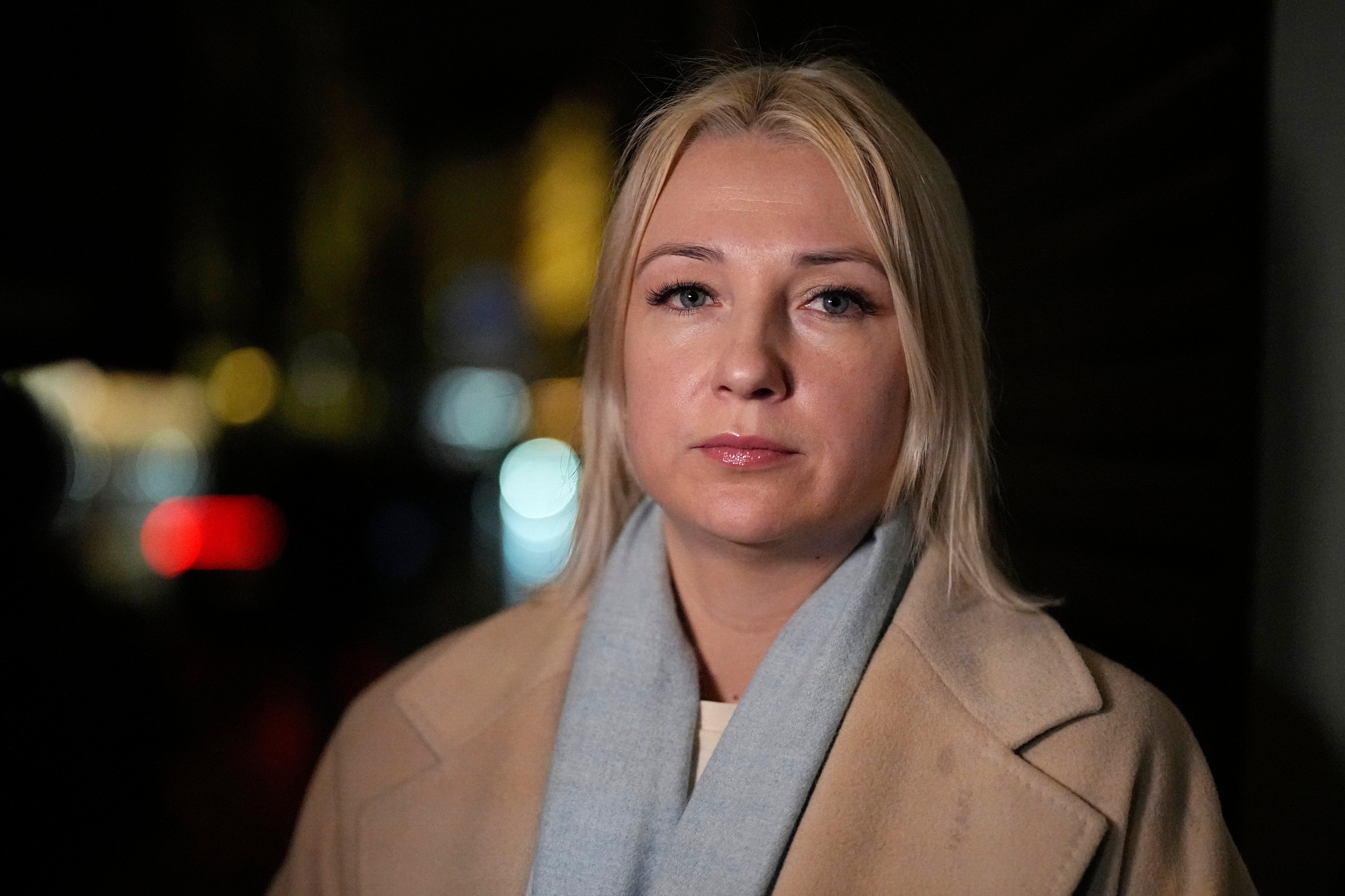Russian court bans anti-war candidate from election as Putin’s grip on power tightens
Yekatrina Duntsova is third opposition figure to be sidelined since Putin announced next presidential term

Russia’s highest court has upheld a decision denying an anti-war politician from running in the upcoming presidential election against Vladimir Putin.
Yekatrina Duntsova, 40, a former TV journalist, revealed the Russian Supreme Court had upheld a ban imposed by the election commission last week against her.
She is at least the third opposition figure to Mr Putin who has been sidelined since the Russian autocrat announced earlier this month that he would run for a fifth presidential term.
Russia’s central election commission refused to accept Ms Duntsova’s initial nomination by a group of supporters, citing errors in the paperwork, including spelling.
She revealed on Wednesday that Russia’s Supreme Court had upheld that decision. Both courts are controlled by the Kremlin.
Ms Dunstova, a former regional legislator, has promoted her vision of a “humane” Russia “that’s peaceful, friendly and ready to cooperate with everyone on the principle of respect”.
The opposition politician remained defiant after the result at the Supreme Court, one that she likely expected.
She wrote on Telegram: “We cannot give up. We need to act to make our voice heard. There are a lot of us.
“We will definitely achieve the right to live without fear, speak freely and be confident in our future.”
She added that she believed that there are tens of millions of Russians who oppose the war in Ukraine but that they did not have a single political party to represent them.
Under Russian law, independent candidates must be nominated by at least 500 supporters, and must also gather at least 300,000 signatures from 40 regions or more to run in the election.
But the election commission has the right to block candidates such as Ms Duntsova irrespective of the number of signatures acquired, while any hopes of success once officially a candidate on the ballot are precluded by the Kremlin’s fixing of the result.
The fact of merely identifying as an opposition to Mr Putin is also enough to be reprimanded.
The Russian leader announced his intention to run for his fifth term on 8 December during a stage-managed awards ceremony with war veterans returning from the frontlines in Ukraine.
His main political opponent, Alexei Navalny, 47, who has been imprisoned for 19 years on bogus extremism charges, was not seen for several weeks subsequently, before being discovered in a penal colony earlier this week in the Arctic Circle, more than a thousand miles away from Moscow.
At the same time as Putin’s presidential announcement, two of Mr Navalny’s lawyers had their pretrial detention custody extended until 13 March, four days before the next national vote, without reason.
Igor Girkin, an ultranationalist who had stated his intention to run for the presidency, also had his pretrial detention extended by six months.
Mr Putin’s inevitable victory on 17 March will set him up to rule Russia until 2030. He forced a constitutional change in 2020 that permits him to rule for another two consecutive terms, meaning he could remain in power until 2036, when he will be 83.
He is currently the longest-serving Russian president since Josef Stalin - the four years he stepped down to prime minister, between 2008 and 2012, Mr Putin was widely regarded to still be at the helm of the Kremlin.
He will become Russia’s outright longest-serving leader around the year 2030.
Subscribe to Independent Premium to bookmark this article
Want to bookmark your favourite articles and stories to read or reference later? Start your Independent Premium subscription today.

Join our commenting forum
Join thought-provoking conversations, follow other Independent readers and see their replies